SURFing with ASPB: How fellowships and mentorship for undergraduates foster a more diverse and inclusive society
Hello ASPB members!
If we haven’t met, or if you don’t follow me on Twitter (@PLANTasticPope), my name is Lauren Pope and I am a first-year graduate student in the Stanford Biosciences PhD program. While I am still rotating through labs during my first year at Stanford and am seemingly far from the completion of my PhD, this transition to graduate school has provided me with a great opportunity to reflect on my undergraduate research experience, which is when I first became involved with ASPB. I hope through sharing these reflections it will become apparent how important undergraduate fellowships and general support for inclusive mentorship of those just beginning their research careers are essential for another successful 100 years of ASPB.
During my junior year at James Madison University, a primarily undergraduate institution in Virginia, I was unsure of what I wanted to do with my degree. Simultaneously, I knew I needed to start doing research to accomplish my personal goal of writing an honors capstone at JMU. While I didn’t understand what research entailed, I decided to join a lab-based on the type of mentorship I would receive by working with Professor Jonathan Monroe, from who I believe everyone could learn about mentorship. Carrying out a two-year-long research project on the biochemical structure and function of Arabidopsis b-amylase2 (BAM2) helped me envision myself as a scientist. This work culminated not only into my honors capstone, but also a handful of poster presentations, talks, and two publications. These achievements from undergrad would have been impossible without ASPB’s Summer Undergraduate Research Fellowship and the humble and effective mentorship of many in the ASPB community.
The ASPB Summer Undergraduate Research Fellowship (SURF) in 2017 helped solidify my interests in research. I spent ten weeks during the summer leading a research project where I worked tenaciously with my PI and the former postdoc, Dr. Amanda Storm, in the lab to determine the biochemical function of Arabidopsis BAM2. During the process, I learned how to navigate a mentor-mentee relationship and transitioned from a timid student into a passionate scientist. I later applied to many graduate programs and decided to start my PhD at Stanford in Biology in the fall of 2018.
The people I met through the two annual Plant Biology meetings I attended became my first academic community. Coming from a first-gen/low-income background I was intimidated by science but found ASPB’s culture welcoming and encouraging. At my first Plant Biology end-of-conference dinner in Hawaii, I fortuitously ended up sitting next to the Carnegie Institution’s own Winslow Briggs. His encouragement to continue pursuing science was formative in my identity as a scientist. ASPB meetings allow opportunities for those just beginning their careers to interact with leaders in the field. I hope ASPB will continue to diversify the ways these scientific leaders can de-mystify the academy and provide encouragement to young scientists while at meetings.
I am beginning to realize the great impact that being an ASPB SURFer will continue to have on my career. SURF helped me acquire the professional workplace skills I needed to later complete an internship at Corteva’s plant breeding research station in Champaign, Illinois. I was even more fortunate to give a concurrent symposium talk at Plant Biology 2018 in Montreal about work that started during my SURF summer, which exposed me to scientific public speaking before I started graduate school. Most recently, I was awarded the National Science Foundation Graduate Research Fellowship, the proposal for which I wrote under the mentorship of Professor José Dinneny and Professor Mary Beth Mudgett at Stanford. I attribute these recent successes – at least in part – to the skills I acquired while completing my SURF project.
By now it is clear that the mentorship, community, and research funding I received from ASPB were paramount to my development as a young scientist. Continued support for the future growth of ASPB’s SURF is just one way we can push forward to create an even more inclusive, engaged, and community-driven society. I also implore each of us to commit to intentional and empathetic mentorship and keep faith in the abilities of undergraduates. I can’t wait to see how the society grows!
 Author: Lauren Pope, 1st year PhD student in the Stanford Biosciences Department. Alum of Prof. Jon Monroe’s lab at JMU studying biochemistry of starch hydrolases.
Author: Lauren Pope, 1st year PhD student in the Stanford Biosciences Department. Alum of Prof. Jon Monroe’s lab at JMU studying biochemistry of starch hydrolases.


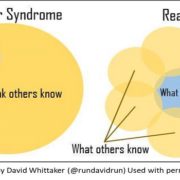
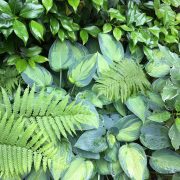
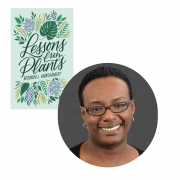
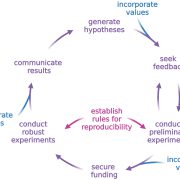

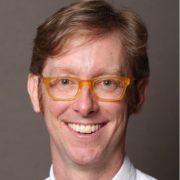
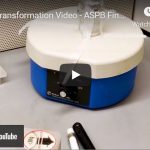

Leave a Reply
Want to join the discussion?Feel free to contribute!